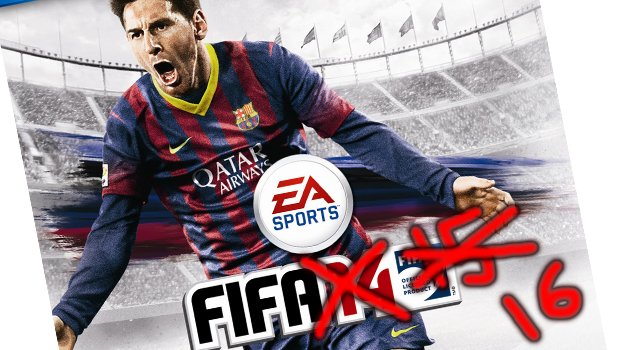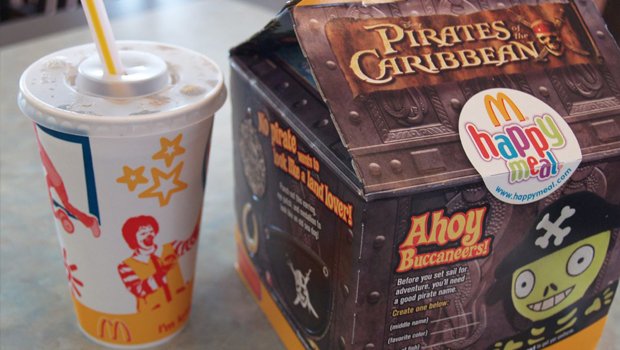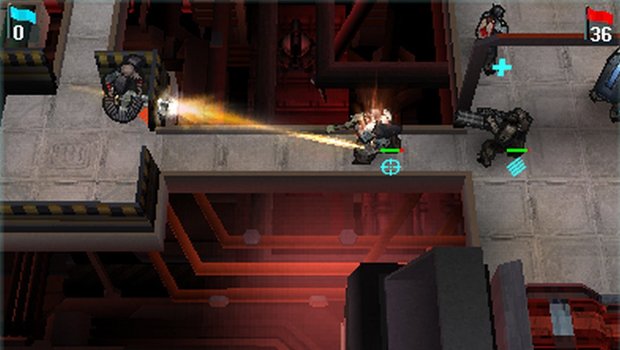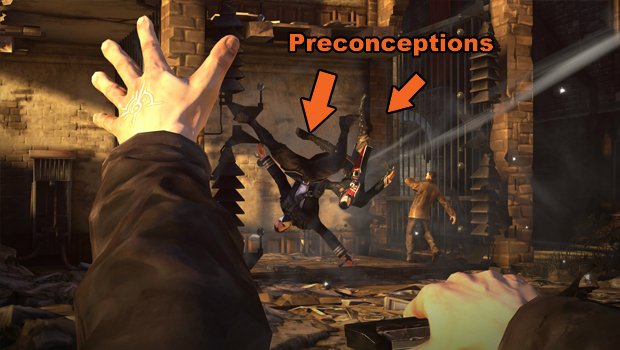Gaming's obsession with franchise growth is smothering new games
Once we had film licenses. Now we have games licensed from other games
Video game branding is a weird thing. The general thinking, of course, is that recognisable names shift boxes faster than scary, unknown, new IP does. It’s as if games buyers operate on some purchasing equivalent of stranger-danger thinking. Don’t trust the bad man at the school gates with his big bag of shiny, sugar-coated screenshots. Stick to games you know and trust, kids.
And a lot of the time, that business philosophy holds true. Human beings are, after all, creatures of habit. They find security in familiarity, If they find enjoyment in a particular experience, then the promise of more of that experience is an enticing prospect indeed. But somewhere along the line, the games industry’s eagerness to furnish us with the familiar seems to have lost the run of itself. Because increasingly, it feels like the very familiarity that said returning brands and characters are supposed to guarantee is betrayed by inappropriate use.

I’m not endorsing cookie-cutter sequels and the selling of glorified yearly expansion packs as whole new games. But over-reliance on recognisable IP often seems to work in reverse these days, tying unrelated, very different products to a paper-thin guise of familiarity for fear of scaring away the potential audience of an often otherwise decent new game.
In some cases, vague-branding is done right. Franchises like Far Cry 3 and BioShock do a great job of guaranteeing a certain approach to gameplay and narrative themes while also providing quite different games. But the BioShocks and Far Crys of the world are the minority good examples; games under the same (or similar) banner which deliver an undeniably related set of values with each and every installment. At the opposite end of the scale though, there are a hell of a lot of franchises doing, well, the opposite.
Look at almost any major video game IP and you’ll see it. A franchise starts with a core game that people loved, and but then spreads out, diluting as it goes, until the original game experience exists as little more than the memories stirred up by a recognisable logo stamped on the box of an unrelated game. It’s the same method by which film studios and burger chains team up to sell fried junk food by sticking a picture of a popular cartoon robot on the bag. There’s zero real association (Hell, robots don’t even eat food), but the branding lures people in anyway.

But the really frustrating thing is that a lot of these games are nothing like those cheaply made patties of greying despair, flipped joylessly by the various underpaid students of the world. They’re often really good in their own right, which makes tying them to a successful but unrelated franchise a bit of a disservice.
Rightly or wrongly, seeing this kind of flagrant franchise-stapling always gives me the immediate impression that the game in question is a cheap cash-in. Think about it. Whenever you see one of those greasy paper bags adorned with the crumple-distorted face of a once cheery animated automaton, what’s your first thought? If you’re an adult and culinarily discerning with it, that thought is probably “Look at the cynical crap they’re doing to sell crap to idiot kids”. And that’s exactly what happens whenever I see a Dance Dance Revolution: Assassin's Creed Edition or Halo Galactic Poker Tournament. We’ve been trained for decades to recognise that that licensed games are crap, and there’s no reason that our responses should be any different now that we’re effectively getting licensed games based on other games.
Sign up to the GamesRadar+ Newsletter
Weekly digests, tales from the communities you love, and more
And that’s a shame, because like I said, a lot of these games would be excellent with or without the big-name license. Perfect example: Ghost Recon Shadow Wars. Appearing during the 3DS’ launch window, it had all the classic signs of a quickie cash-in, being a supposed Ghost Recon game on a new console that bore no resemblance at all to the gameplay conventions of the core series.

But what none of that told us was that Shadow Wars was an excellent turn-based strategy game from Julian Gollop, creator of the original X-Com games, and legitimate TBS godfather. Those latter points are the important ones. They’re the reasons to get excited about Shadow Wars. But instead of screaming them from the hilltops, Ubisoft masked them within the long shadows of a AAA franchise bearing only passing resemblance to the 3DS game. Ditto Assassin’s Creed: Recollection. Fine iOS card game, unfortunately stuck with the image of being a cheap spin-off from a bigger, more ‘legitimate’ game.
Sometimes it’s questionable just how much value a franchise association has anyway. Did the Spec Ops name (forgotten, as it was, for a decade, and tied to a completely different style of game) really do 2012’s The Line any good? Or did it just confuse old-time fans and preclude the game from having a more dynamic, less generic title which might have better communicated its powerful, uniquely uncompromising narrative intelligence? Surely tying a needless, archaic association to a very different 'sequel' muddies those old brand values anyway, creating a Catch 22 which ultimately renders any recognition value worthless as perceptions of the series change overnight.

So what's the solution? The simple (but also complicated) answer would be for publishers to shake the assumption that a new game needs an old name in order to succeed. Because it just isn't true. Dishonored is a great example, coming as it did from a ‘new’ studio yet striking a very loud chord with an audience probably completely unfamiliar with the names Harvey Smith and Ricardo Bare. It struck that chord simply by being good, and being sold by publisher Bethesda based on its own unique qualities. Ditto The Last of Us, which arrived at a time in the PS3’s life when sequels and DLC were becoming the norm, yet stood alone, making very little attempt to play even on Naughty Dog’s Uncharted heritage.
But for that to happen, gamers need to play along too. So don’t just stick to safe bets. Acknowledge that a lot of the time you don’t really want a repeat of a previous experience anyway, but rather a fresh one that makes you feel just as excited. And those don’t come from retreads. Shop around, stay open to new ideas, and research anything that even slightly interests you, without making snap decisions. Established AAA franchises can be great long-term experiences, but they all started somewhere. You never know where your next favourite one is going to come from.
You know that kid at parties who talks too much? Drink in hand, way too enthusiastic, ponderously well-educated in topics no one in their right mind should know about? Loud? Well, that kid’s occasionally us. GR Editorials is a semi-regular feature where we share our informed insights on the news at hand. Sharp, funny, and finger-on-the-pulse, it’s the information you need to know even when you don’t know you need it.



